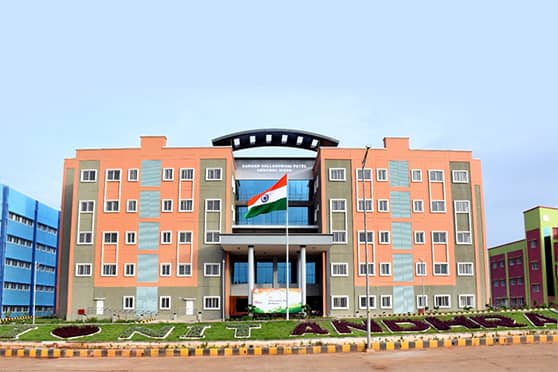NIT AP conducts course on Risk and Life Cycle Assessment of Engineered Nanoparticles in the Environment


The National Institute of Technology (NIT) Andhra Pradesh is conducting an online course on ‘Risk and Life Cycle Assessment of Engineered Nanoparticles in the Environment’.
The programme offered civil engineering department of NIT Andhra Pradesh is sponsored by the Union ministry of education’s Global Initiative for Academic Networks (GIAN).
The primary objective of the course is to help participants understand how engineered nanoparticles (ENP) interact with the environment; evaluate their toxicity; determine the concentration of ENPs in an aqueous environment; assess, communicate and manage risk and analyse the lifecycle of ENPs. The course entails lectures and case studies.
The course is targeted at students pursuing post-graduate degrees in Civil Engineering, Environmental Engineering, Chemical Engineering, Biochemical Engineering and Biotechnology can attend the course and rsearchers from government organisations, R&D laboratories and private firms and Engineering and Life Sciences faculty from other academic institutions interested in risk assessment.
“Various Nanomaterials (NMs) are widely used in different fields of application and found in various consumer products. Nanoparticles can undergo several potential transformations that depend on both the properties of the ENM and the local environment, such as aggregation, dissolution, oxidation, sulfidation and other surface alterations. These transformations complicate our understanding of their long-term fate and implications are still relatively poorly understood. Concerns about the potential environmental risks induced by the exposure to engineered nanomaterials (ENM) are growing,” said CSP Rao, director, NIT Andhra Pradesh.
Nanomaterials are useful and have potential use in various sectors, but they pose health and environmental risk that is yet to be fully understood. “There is also a concern on the environmental sustainability of NMs pathways contributing to environmental problems. Accordingly, this course will provide detailed insight and I strongly feel that this course attempts to fill this void,” Rao said.
Brajesh Kumar Dubey, associate professor at Indian Institute of Technology (IIT) Kharagpur, shared Rao’s concern regarding the effects of ENPs on the environment. He too highlighted the importance of understanding the risk posed by the nanoparticles.
Lok R. Pokhrel, assistant professor, department of Public Health (BSOM) and department of Health Education and Promotion (HHP), East Carolina University, spoke about nanotoxicology being a potential area to promote the sustainable use of ENPs.
Baranidharan S, course coordinator and head of the department of Civil Engineering, NIT Andhra Pradesh, introduced the course and highlighted its focus as the risks associated with ENPs in the Environment.
Dinesh Shankar Reddy, Registrar (i/c), NIT Andhra Pradesh, presented an overview on the evolution of the institution. Vinoth Kumar Raja, the coordinator of the Institute’s GIAN section highlighted the importance of NIT collaborating with foreign faculty for skill-building.
The vote of thanks was presented by J.N.P. Pratyusha, assistant professor, department of Civil Engineering, NIT Andhra Pradesh.